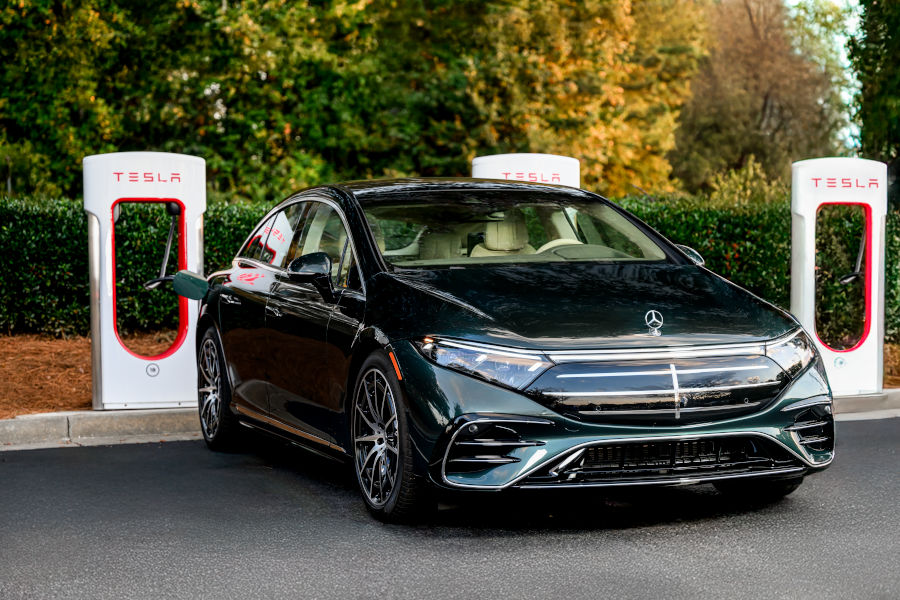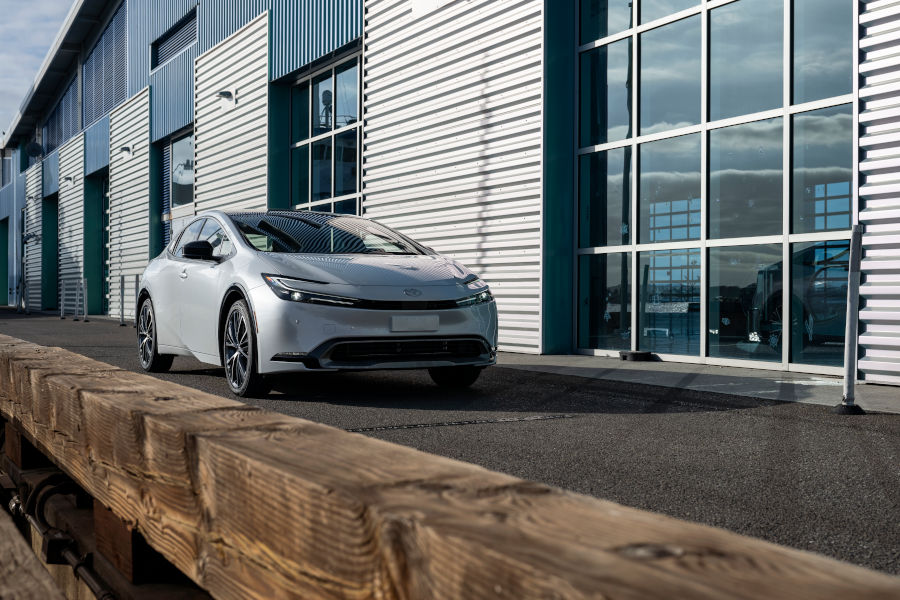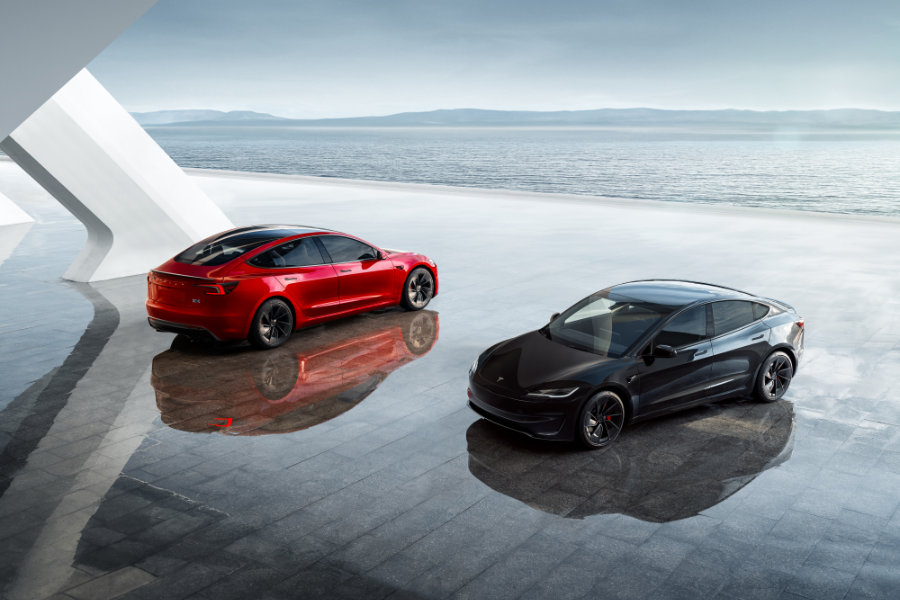
by Admin | Dec 20, 2025 | Electric Cars, Toyota, Used Cars
The federal tax incentive that has helped make electric vehicles more affordable for American buyers was eliminated on September 30, 2025. Governor Newsom has confirmed that California won’t be replacing this credit that was helpful to consumers and EV sellers. The $7,500 tax credit has been a cornerstone of EV adoption since its introduction, but its removal is sending shockwaves through the automotive industry.
Additionally, The New Clean Vehicle Credit, Previously-Owned Clean Vehicle Credit and Qualified Commercial Clean Vehicle Credit will not be available for vehicles purchased after September 30, 2025. Speak with your tax preparer, if this affects your tax filing.
How Automakers Will Respond to Lost Incentives
The elimination of the $7,500 tax credit puts significant pressure on automakers who have invested billions in electric vehicle development. Without this incentive, EVs become substantially more expensive compared to their gas-powered counterparts, potentially slowing the momentum of the industry’s electric transition. Manufacturers may be forced to reduce vehicle prices to remain competitive, cutting into already thin profit margins on EVs. Some brands might scale back production plans or delay new model launches until battery costs decrease naturally. Legacy automakers who recently committed to electric lineups face particularly difficult decisions about their investment strategies.
What This Means for EV Sales and Buyers
The immediate impact on consumers is clear: electric vehicles will effectively cost $7,500 more without the federal incentive. This price increase could push many budget-conscious buyers back toward traditional gasoline vehicles or hybrids. Industry analysts predict EV sales growth could slow significantly, potentially reversing years of steady adoption gains. However, this change might also accelerate innovation as manufacturers seek ways to produce more affordable electric vehicles without government support.
For buyers considering an EV purchase, keep an eye on advertisements on manufacturers websites. You might benefit as automakers potentially lower prices to maintain market share.
At A1 Performance Auto Repair, we’ll continue servicing all vehicle types as the market evolves.

by Admin | Aug 20, 2025 | Electric Cars
Electric and hybrid cars can actually recharge their batteries while slowing down, essentially turning every stoplight into a mini charging station!
This demo below shows how regenerative braking works.
The demo shows the key insight: while traditional cars waste all that kinetic energy as heat on brake pads, electric cars cleverly reverse their motors to become generators, turning every stoplight into a mini charging opportunity. It’s like having a built-in energy recycling system!
This concept is fascinating because it completely flips conventional thinking about efficiency – electric cars actually get more efficient in stop-and-go city traffic, which is the opposite of gas cars.
⚡ Regenerative Braking
How Electric Cars Turn Braking Into Free Energy
🚗 Traditional Cars
🔥
Energy → Heat → LOST
Brake pads create friction, converting your car’s motion into heat that just disappears into the air.
⚡ Electric Cars
🔋
Energy → Motor → BATTERY
The motor runs backwards like a generator, capturing your motion and storing it as electricity.
🎯 Real-World Impact
20-30%
Energy Recovery in City Driving
75%
Less Brake Pad Wear
15-20%
Range Increase
🔧 How It Actually Works
1
You lift your foot off the accelerator or press the brake pedal
2
The car’s computer reverses the electric motor
3
Your car’s momentum spins the motor backwards, making it act like a generator
4
This creates electricity that flows back to recharge the battery
5
The resistance from generating electricity naturally slows the car down
💡 Why This Matters for Car Owners
City Driving Advantage: Unlike gas cars that get worse mileage in stop-and-go traffic, electric cars with regenerative braking actually become more efficient. Every red light becomes a charging opportunity!
Maintenance Savings: Your brake pads last 3-4 times longer because the electric motor does most of the stopping work.
Smoother Driving: Many drivers love the “one-pedal driving” feel – lift off the gas and the car naturally slows down while charging the battery.

by Admin | Apr 5, 2025 | Electric Cars, Mercedes Benz, Tesla
Mercedes me Charge Service, which is used by Mercedes BEVs (Battery Electric Vehicles) owners, is working on an expansion of their charging network. This will eventually expand their network up to 110,000 stations throughout the US and Canada.
This major expansion begins in February 2025.
The first expansion will provide the Tesla Supercharger Network to Mercedes BEV owners. This brings 20,000 additional charging stations to Mercedes customers in the US and Canada.
“As our technologically advanced and highly compelling all-electric vehicle portfolio continues to grow, we recognize that a critical component for a seamless ownership experience for our customers is to ensure convenient access to a broad charging network. Adopting the NACS standard in our electric vehicles and opening the Tesla Supercharger network to our battery electric vehicle customers represents an important step forward as we continue to build a strong foundation to bring additional, game-changing all-electric vehicles to the market. Together with our fantastic dealer partners, we remain committed to reimagining the future of mobility and setting the benchmark in the luxury segment.”
Dimitris Psillakis, CEO, Mercedes-Benz USA
What You’ll Need
Your existing Mercedes-Benz EV will need CCS1-compatible charging ports. Mercedes will release a Mercedes-Benz approved NACS to CCS1 DC fast charging adapter. This adapter will allow existing vehicles to charge at Tesla Superchargers and will be available for purchase at authorized Mercedes-Benz dealerships in the United States for $185 in the first quarter of 2025 in the US (and will be available from Canadian dealerships in Q2 2025). You will be notified when adapters are available to purchase.
Even More to Come in the Future
Starting in 2025, Mercedes-Benz will begin integrating NACS ports in its new electric vehicle lineup in North America. This will ensure that future Mercedes-Benz models can directly connect to any NACS DC fast charging point without the need for an adapter, making charging even more convenient for Mercedes-Benz customers.
The integration of NACS into Mercedes-Benz’s vehicle line-up, along with the addition of the Tesla Supercharger network to the rapidly expanding Mercedes me Charge portfolio, marks the brand’s latest offerings in a comprehensive approach to EV charging.
Contact your local Mercedes-Benz dealer for more information.

by Admin | Nov 5, 2024 | Electric Cars
As it stands, the beauty in design is giving cars the charisma to conquer the competition. Perhaps USPS is wired differently?
The recent unveiling of the USPS Next Generation Delivery Vehicle (NGDV) has sparked conversations about vehicle aesthetics.
Described as “tall and ungainly” with a hood resembling a “duck bill,” these new postal trucks prioritize function over form.
One postal worker noted, “You can tell that (the designers) didn’t have appearance in mind.”
Function over Form, or Form Over Function?
USPS’ utilitarian approach stands in stark contrast to the luxury van market, where manufacturers like Mercedes-Benz are redefining expectations. The latest Mercedes vans exemplify a philosophy that even work vehicles can be beautiful, combining sleek design with practical functionality.
But why does aesthetics matter in the van market?
In today’s competitive landscape, the appearance of a vehicle goes beyond mere vanity. A beautiful van serves as a moving billboard, conveying professionalism and attention to detail. It enhances brand image, improves employee satisfaction, and can significantly impact customer perception, especially in industries where vans are customer-facing.
Well-designed vehicles often hold their value better in the secondary market, providing long-term financial benefits. In a saturated market, standout design can be a key differentiator for businesses choosing fleet vehicles.
Mercedes vans showcase how functionality doesn’t have to come at the cost of aesthetics. With sleek exteriors, luxurious interiors, and seamlessly integrated technology, these vehicles prove that work vans can make a style statement.
The success of beautiful vans has not gone unnoticed. Other manufacturers are following suit, recognizing that in today’s market, even utilitarian vehicles need to appeal to the eye. This trend reflects our evolving expectations in a design-conscious world.
While the USPS prioritized function in their new vehicle design, the broader market trend is clear: aesthetics matter. Whether delivering packages or transporting executives, how a van looks has become almost as important as how it performs. So, in the competitive van market of today, beauty is no longer optional – it’s a premium that pays dividends. Less you are USPS!

by Admin | Aug 20, 2024 | Electric Cars
“Is my car electric or gasoline? Yes.”
Interestingly, hybrid vehicle growth is outpacing that of purely electric vehicles.
In the U.S., hybrid sales increased by 2.8 percentage points, making up 8.3% of all car sales in 2023. That’s about 1.2 million hybrid vehicles sold.
Have people decided to save the planet one Prius at a time? Why are they opting for a middle ground between fully electric and traditional gasoline cars?
Perhaps the answer is psychological.
Comfort with Familiarity
Humans are inherently creatures of habit, often gravitating towards the familiar.
You can say that it’s this preference for familiarity that is playing a role in the huge appeal of hybrids. Why?
Hybrids provide a bridge between the known and the new.
For many drivers, the idea of transitioning entirely to an EV—with its distinct operational differences and new requirements, such as finding charging stations—can be daunting.
Perhaps hybrids offer a sense of continuity. Drivers can experience the benefits of electric power while maintaining the familiarity of a conventional engine – not wandering too much into the dark forest!
This blend of old and new helps reduce anxiety associated with drastic change. For example, starting a hybrid car involves familiar sounds and sensations, unlike the silent start of an EV, which can feel alien to some.
This familiarity provides psychological comfort, making the transition to electric power less intimidating and more appealing.
Control and Independence
The need for control and independence is another significant psychological factor influencing the preference for hybrids. Fully electric vehicles often require reliance on public charging infrastructure, which can be seen as a loss of control and independence.
The fear of being stranded without a nearby charging station—known as range anxiety—is a common concern among potential EV buyers.
Hybrids address this concern by offering dual power sources. The presence of a traditional engine alongside the electric battery provides a safety net.
It’s this duality that gives drivers a greater sense of control over their travel plans, reducing anxiety and enhancing their sense of independence.
Ford Motors and Stellantis are among the automakers already shifting their plans to sell more PHEVs instead of EVs. So, does it mean the future is hybrid?

by Admin | Jun 5, 2024 | Electric Cars
Sustainability is all about reducing consumption and only buying what you truly need.
So, when it comes to cars, does that mean you should hold onto your trusty old gas car rather than upgrading to an electric vehicle (EV)? In many cases, the answer may be yes.
The Case for Keeping Your Old Car
If your current vehicle is already getting great fuel economy and you don’t drive it very often, the greenest choice may be to simply hang onto it for a few more years. Why change something when it’s already working well?
All your car needs is some TLC. Simply keep up with the maintenance schedules and maintain good driving habits.
The Environmental Impact of Manufacturing
One common misconception is that electric cars are automatically better for the environment. While it’s true that EVs produce zero direct emissions during driving, the manufacturing process does come with a significant environmental impact. The mining of rare minerals for EV batteries, in particular, can be resource-intensive and disruptive.
Some environmental experts say that this upfront impact is eventually offset by the emissions savings from driving an electric car – after around 13,000 miles of driving according to engineers.
So, critically, how long would it take to clock those miles before you can say you’re now contributing to green commuting?
Affordability Concerns
For many consumers, the price tag of an electric car can be a major deterrent. While costs are coming down and incentives are becoming more widely available, a new or even used EV may still be out of reach. Keeping your old, paid-off car can be the more budget-friendly option.
The wise thing to do is prioritize your needs over your wants when purchasing an EV. So, if your small or midsize SUV will get the job done, it doesn’t make any sense to indulge in the extra space.












